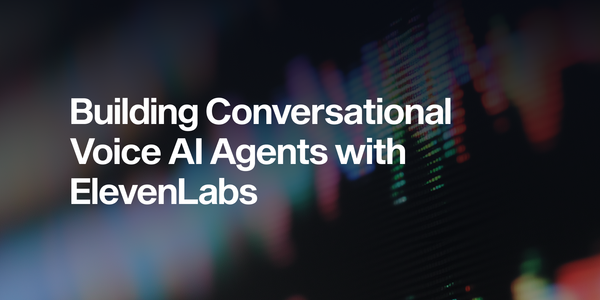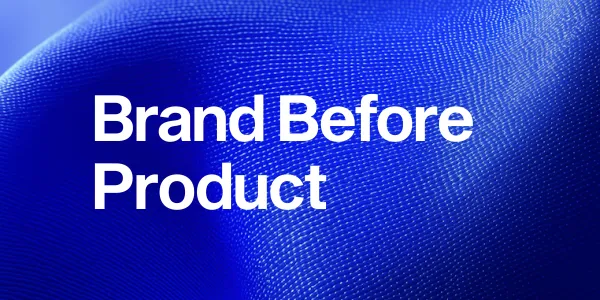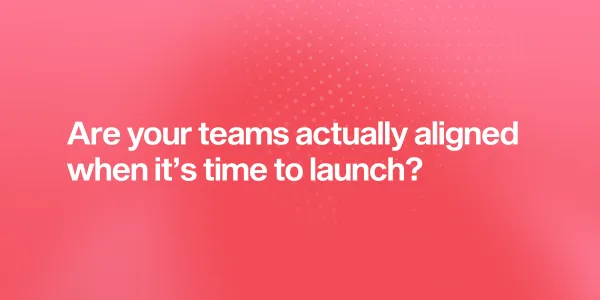A programmer abroad
Attending Stockholm Tech Fest as a programmer was an eye-opening experience. Dino recounts networking with startups, pitching to investors, and tackling misconceptions about tech. Explore how personal growth and company promotion intertwine in dynamic environments.
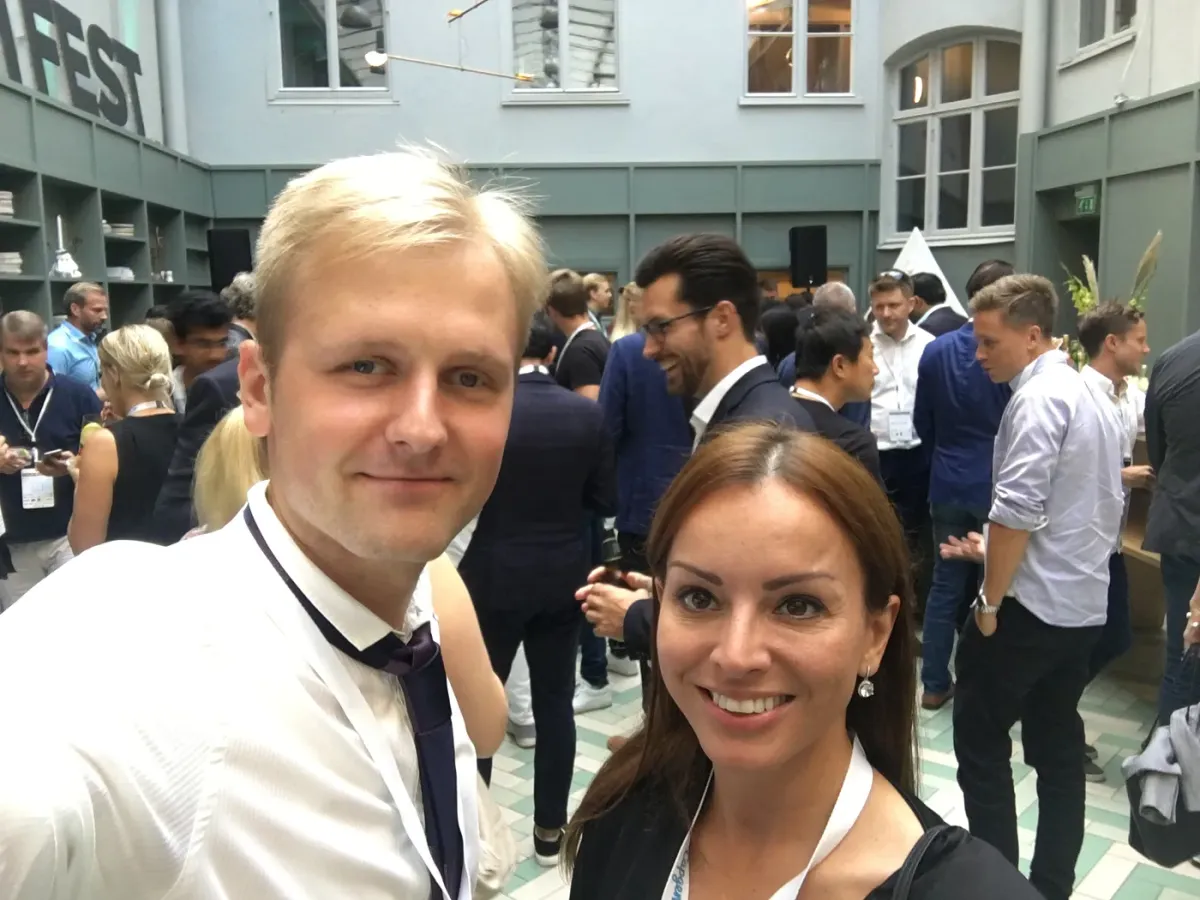
When I was offered to go to the Stockholm Tech Fest 2018 — a large gathering of startups and investors which included 14 technical conferences, more than 50 parties and events, and more than 36,000 guests, I was struck with both excitement and fear. I was excited because it was an opportunity to feel the magnitude of the event and to learn a lot, promote my company in the best way, meet a lot of interesting people and broaden my horizons.
I was scared because, of course I was. Yeah, sure I can talk — I can talk a lot about the company, the projects, the procedures, the people, the technology, the future. I can also talk about that silly UI bug that was giving me a headache for three days, or how I had an awesome steak with my colleagues at a lunch break. But this was important. Like, really important.
I was going to meet with investors and pitch our entire company to them. The combined work of more than 70 people spanning over three years. 14 projects, thousands of resolved JIRA tickets, a bunch of standup meetings, demos, talks, joys, frustrations, ups and downs, praises and criticisms, glorious celebrations and epic failures. All of that will be reduced to a couple of sentences that will come out of my mouth.
Cool.
Let’s go!
Day 1
So, I headed to Stockholm with Jessica, our COO, which was great, because she is super experienced in these kinds of events and I knew I’d be able to learn from her as much as I could. The first event was the Investor’s Party, where a lot of startups and investors are simply placed in one room. What happens next is up to you!

After approaching a couple of people and talking about their businesses or about our own, I realised that this process is called “startup dating” for a good reason. Basically, what you need to do is:
- Make an eye contact
- Smile
- Try to sell yourself the best way you can
- (Try to) be interested in what the other side has to say
- Hopefully get a partner!
Yes, the similarities to romantic dating are unmistakable, indeed (or I need to get out more). So, we spent a good couple of hours constantly talking to people and learning about their companies while promoting our own. It was very interesting to see how some people were genuinely curious about us, asking questions about what we do, while others were just impatiently waiting for us to finish a sentence so they could talk about themselves.
As a software developer — a “technical person”, I found it amusing how unimportant the technical side of everything is at this stage. Only a handful of people asked about the technology we use. Programming languages? Architecture? Servers? CI? CD? No. People would just start yawning and dozing off if I started talking about anything even remotely close to that. At this stage people are just interested in numbers and buzzwords. Here’s a small example of a dialog between me and a startup / investor:
We are Ministry of Programming.
What, like a real ministry? Are you a government organization?
No, we’re just called Ministry of Programming. We’re not actually a…
Oh, I see what you did there! That’s awesome! Such a cool name. So what do you do?
We are a technical co-founding company from Bosnia and Herzegovina, we began as a startup three years ago but today we create startups from the ground up…
(Zzzzzzzzzzzz…..)
We have 14 startups with more than 70 people and offices in Sweden and Germany. We work on fintech, medtech projects, social networks and more. Our biggest partner had the 2nd biggest ICO in Germany last year. We also have a partnership with Microsoft for one of our projects, which is…
(Eyes wide open) Wow, you guys really do a lot!
People like simple and to-the-point answers. While talking to several startup owners, I heard some pretty cool pitches. The ones who impressed me the most were the people who had a demo of their app ready on their mobile phone. It doesn’t get more effective than that. I also witnessed some horrible pitches, for example, the one where the business owner just talked about how bad their business was at the moment, how they needed more people and how they hoped for better days.
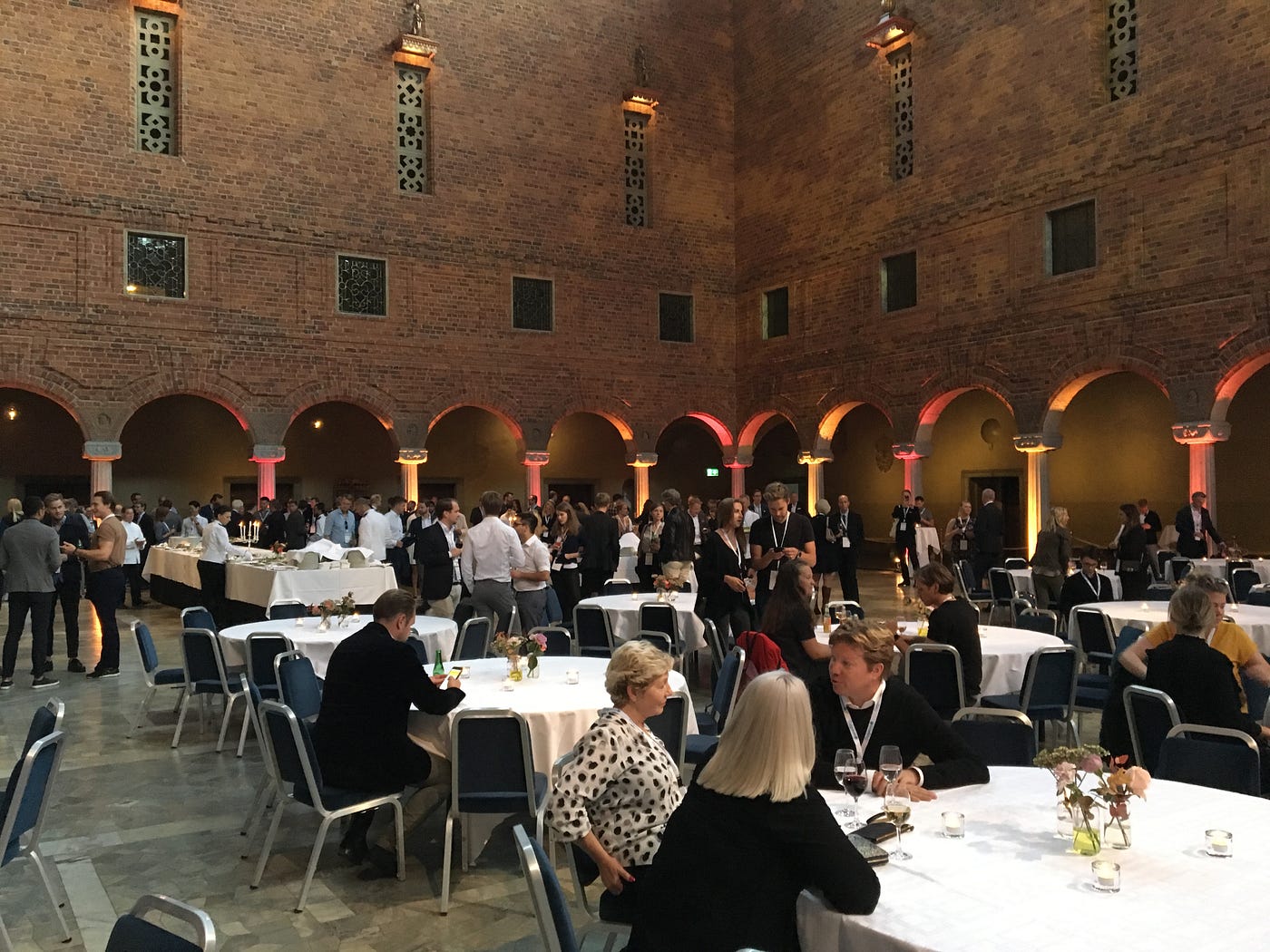
The mingling continued into the night, at VIP Dinner Party at the Stockholm City Hall. All the people from the investor’s party were there, and more. We had a chance to eat at a Smörgåsbord, or Swedish buffet. This provided us with the opportunity to meet even more business people, and also strengthen the connections we had already made.
Speaking about connections, there is one thing I just can’t understand. How is it possible that there are people who come to events such as this one without their business cards? Without a business card, you don’t exist. You will end up forgotten. Cease to be. Expired and gone!
Yes, you can try remembering names, writing them down or taking your time to search for the person on LinkedIn right in front of them. But why? Not having a business card just makes you look unprofessional.
Day 2
Day 2 was the big day. The Expo! We arrived early at Stockholm Waterfront Center and put up our promo materials. We organised in a way that one person was always at the booth, talking with people and answering questions about the company, and the other went to presentations that were being held at the same time. The person who was at the booth needed to promote MOP in the best way possible, while the other needed to take notes from the presentations in order to transfer the knowledge back to MOP.
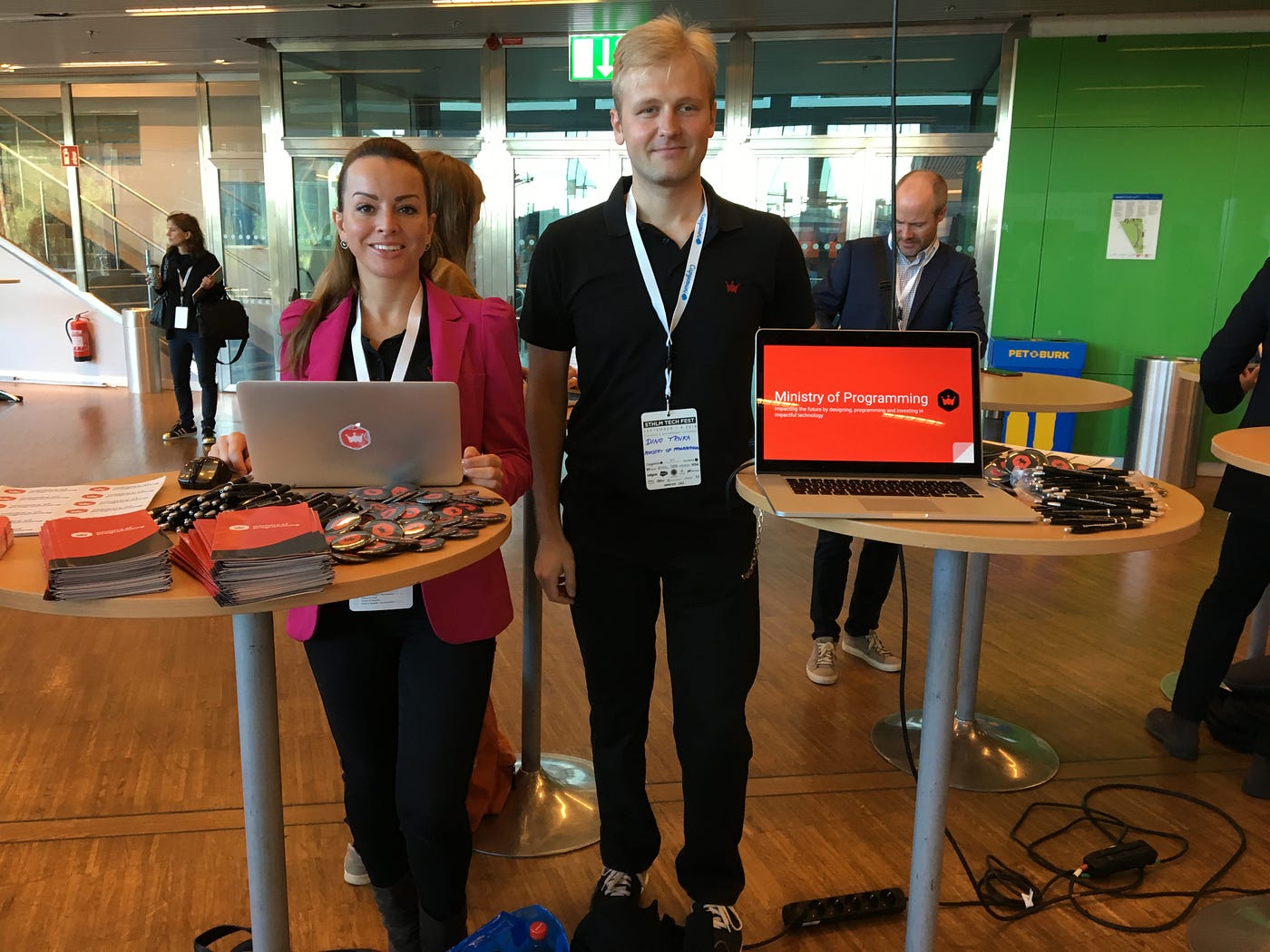
While at the booth, I faced various questions and attitudes. Some people came because they found our booth elegant and wanted to know what it was all about, while others were much more curious. Several people took out a notebook and wrote down everything I said, asking specific details such as the current price of NAGA Coin (NGC) cryptocurrency, or the number of developers annually produced in Bosnia and Herzegovina (?). Some were more interested in our MedTech projects, some wanted to hear only about the FinTech projects. Luckily, with MOP handling 14 projects at the moment, I always had something to say to everyone.
People who approached me came from different backgrounds — developers who wanted to land a job at MOP (whose questions were the most technical), investors who were searching for a suitable company to invest in (and were just interested in the big picture), and startup owners who wanted to learn more about us so they can compare themselves to MOP and improve.
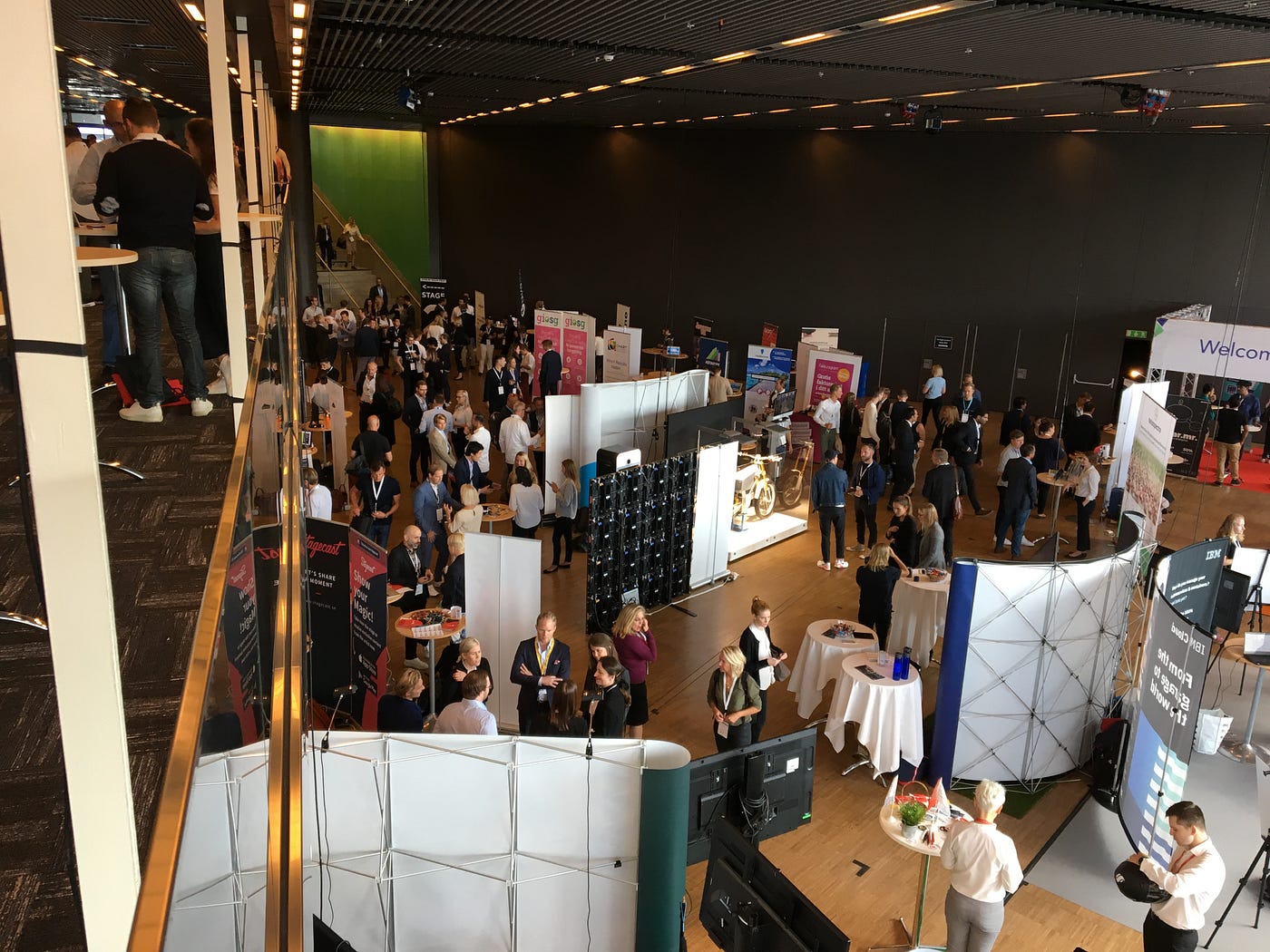
We also attended Startup Dating sessions, where startups and investors were matched at a table, and we had 10 minutes to pitch our company to the investors. This was definitely the most important event of the day. Coming up with what to say and answering all questions in 10 minutes is not an easy task, but I think we handled it pretty well and developed some very valuable business relationships.

I also attended presentations. Some of them were pretty boring and not really engaging, but I loved the AI presentations, which were abundant, since it’s such a hot topic nowadays. It seems like everyone has got something to say about it.
Generally, people’s attitude towards AI differs greatly. Some people are really hyped (“Flying cars yay!”), some are afraid (“Robots/Self-driving cars are going to kill us!”), while others, like governments, are concerned about AI becoming a superpower that outperforms the human race (“They took our jobs!”).
There are people worried about ethical questions that have arisen, and there are those who don’t care, and think AI solutions should be built first and ethics should be considered later, rather than the other way around
(“We philosophise too much before actually making anything!”).
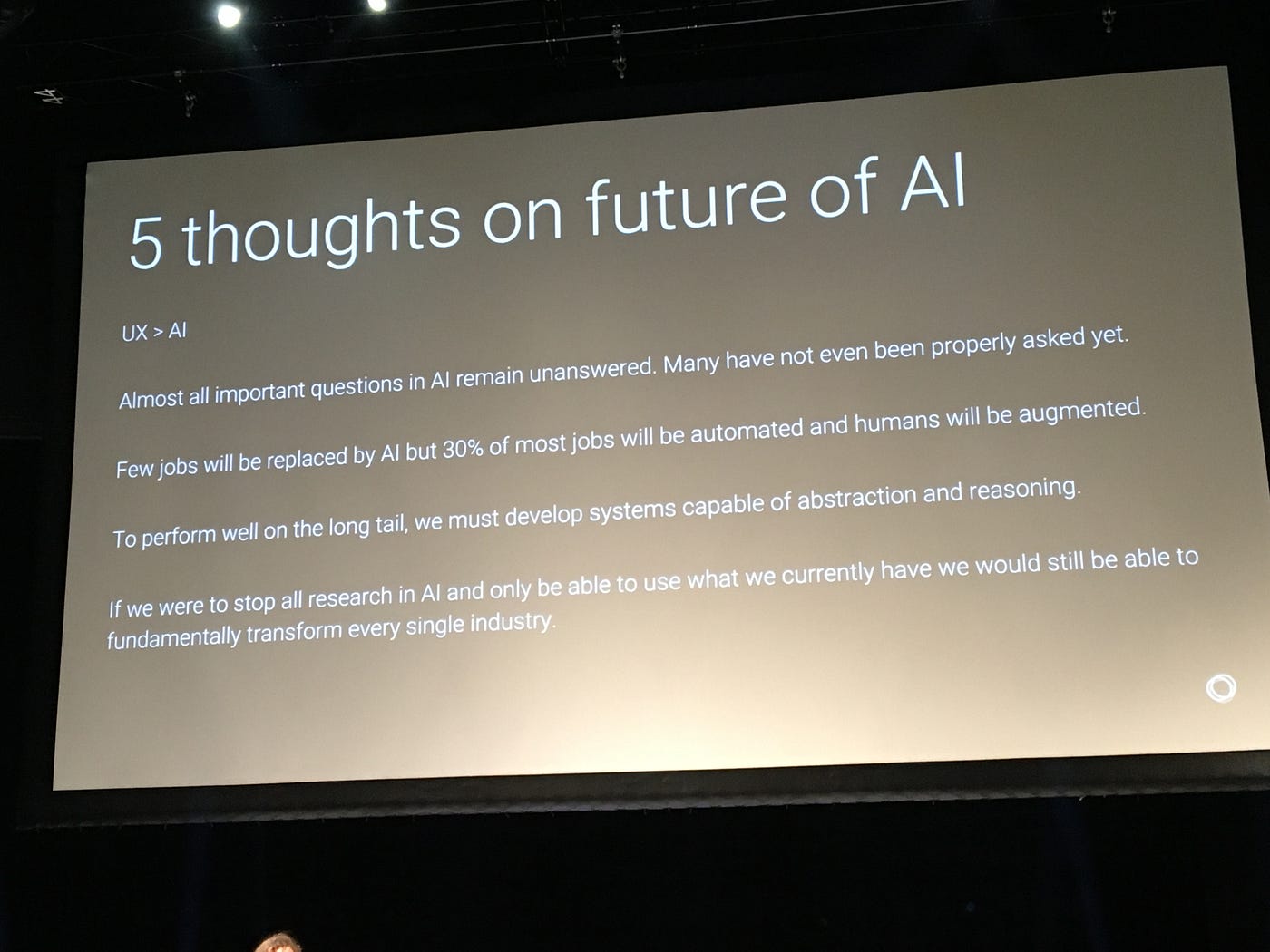
Finally, there are those who consider AI an augmentation of the human mind instead of an obstacle to further progress and think we should utilise it in order to achieve the next step of the human evolution. These individuals stand firmly that we will see more changes in job markets and healthcare in the next 5 years than we have seen in the previous 50 years.
Bottom line is: People are against AI until they find a purpose for it.
Day 3
After the crazy, super-energetic Day 2, which was full of events and encounters, Day 3 was much more relaxed, because all we did was attend workshops. The first workshop I attended was Dealing with Technical Debt by Sigma Software.
This workshop inspired me so much I wrote an entire article about it (Go check it out!).
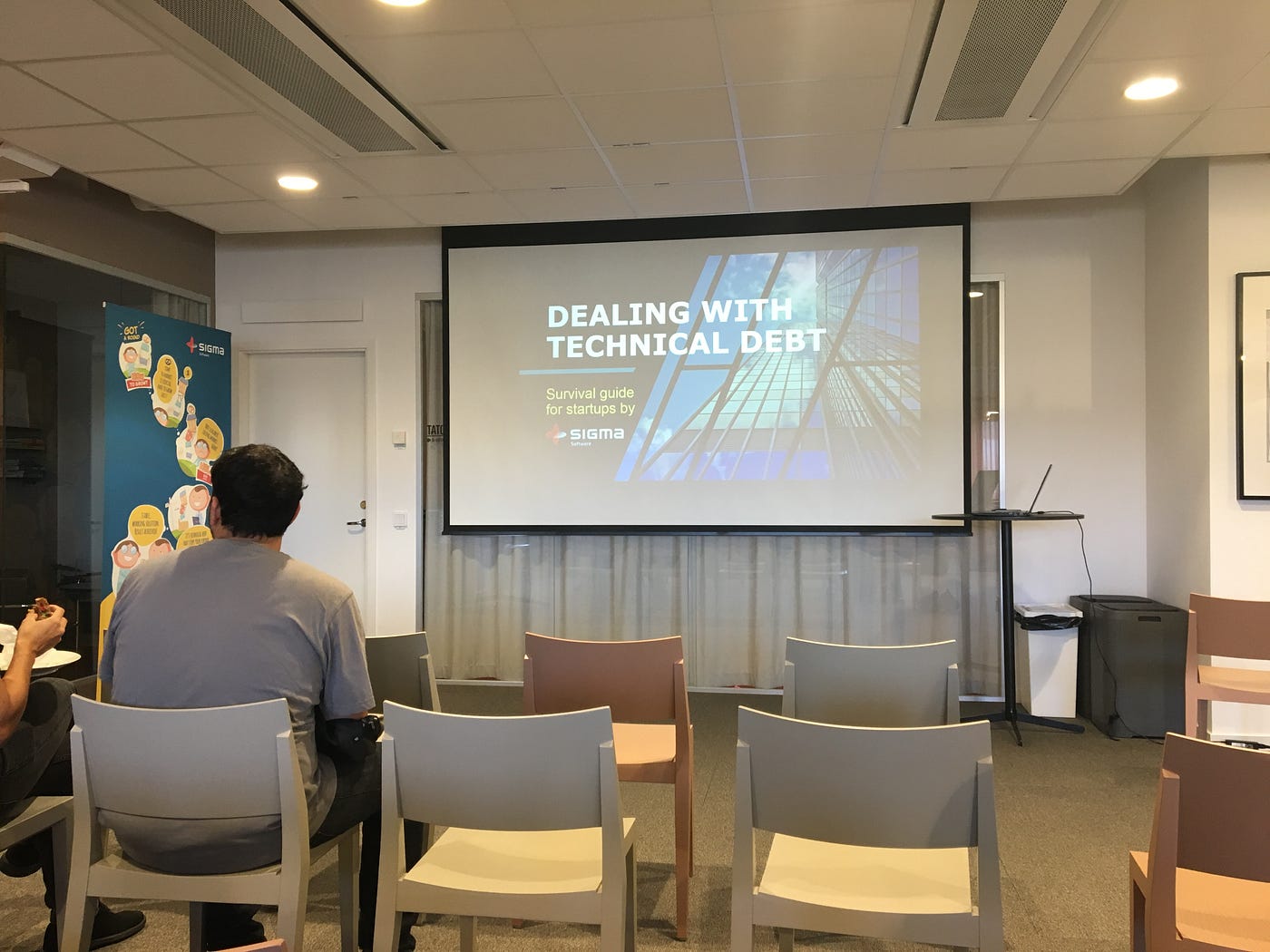
The second workshop was at EY, and it consisted of two parts. The first one was about AI (surprise!), and the second one was about the crazy ICO hype that has been present in the tech world lately. The presentation was very cynical (and with a good reason), pointing out all the pitfalls and legal issues that come with ICOs.
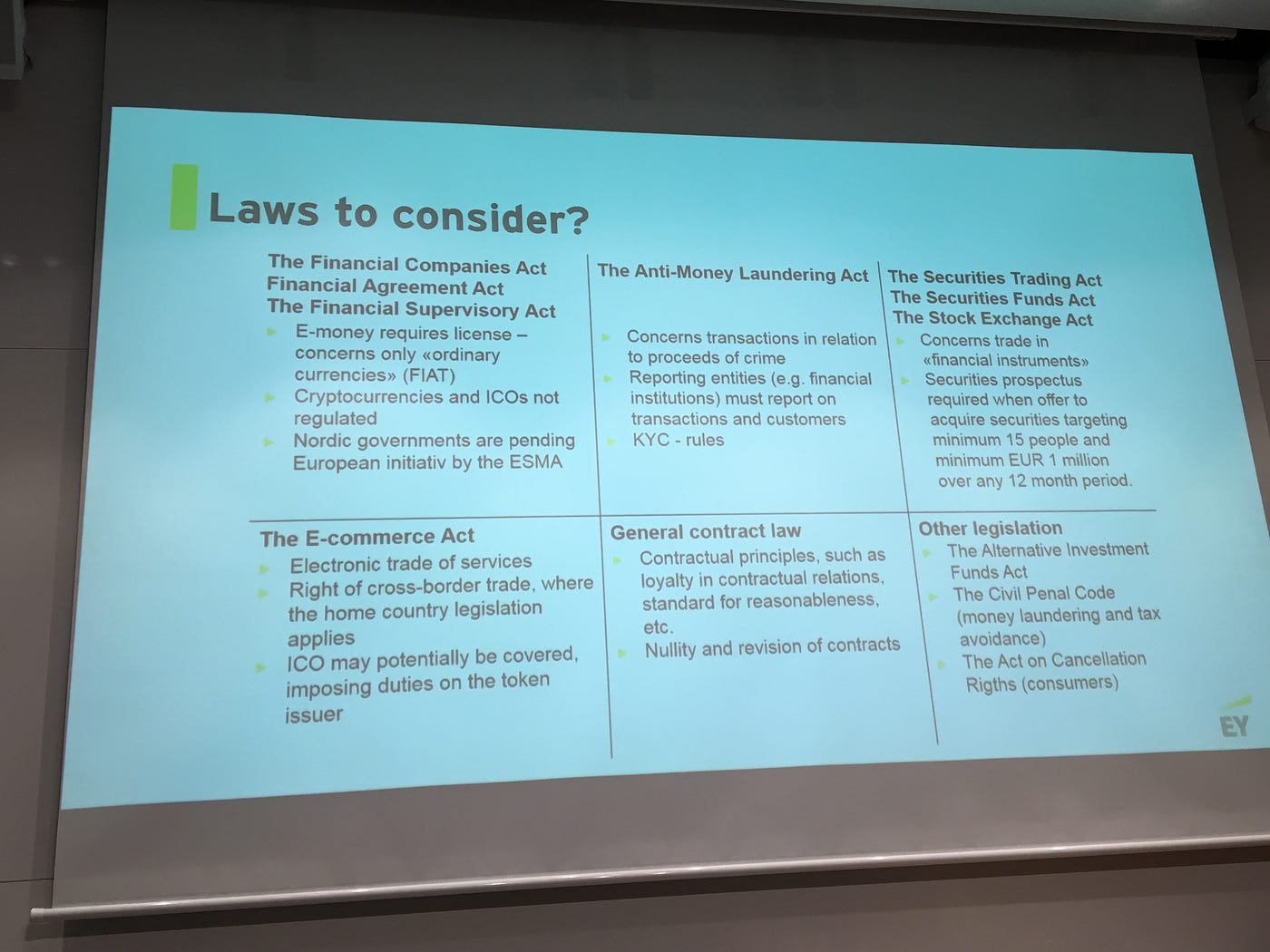
The third workshop was AI Design Sprint at Hyper Island, a private design school, and it was definitely the most engaging one. We were divided in several groups of 6 people and we had a task of designing an AI solution for a fashion-themed app. It was super fun and it brought me back to my college days. At one moment, I was with a bunch of strangers, and in just a few minutes we were working together and exchanging ideas in order to come up with the perfect app.
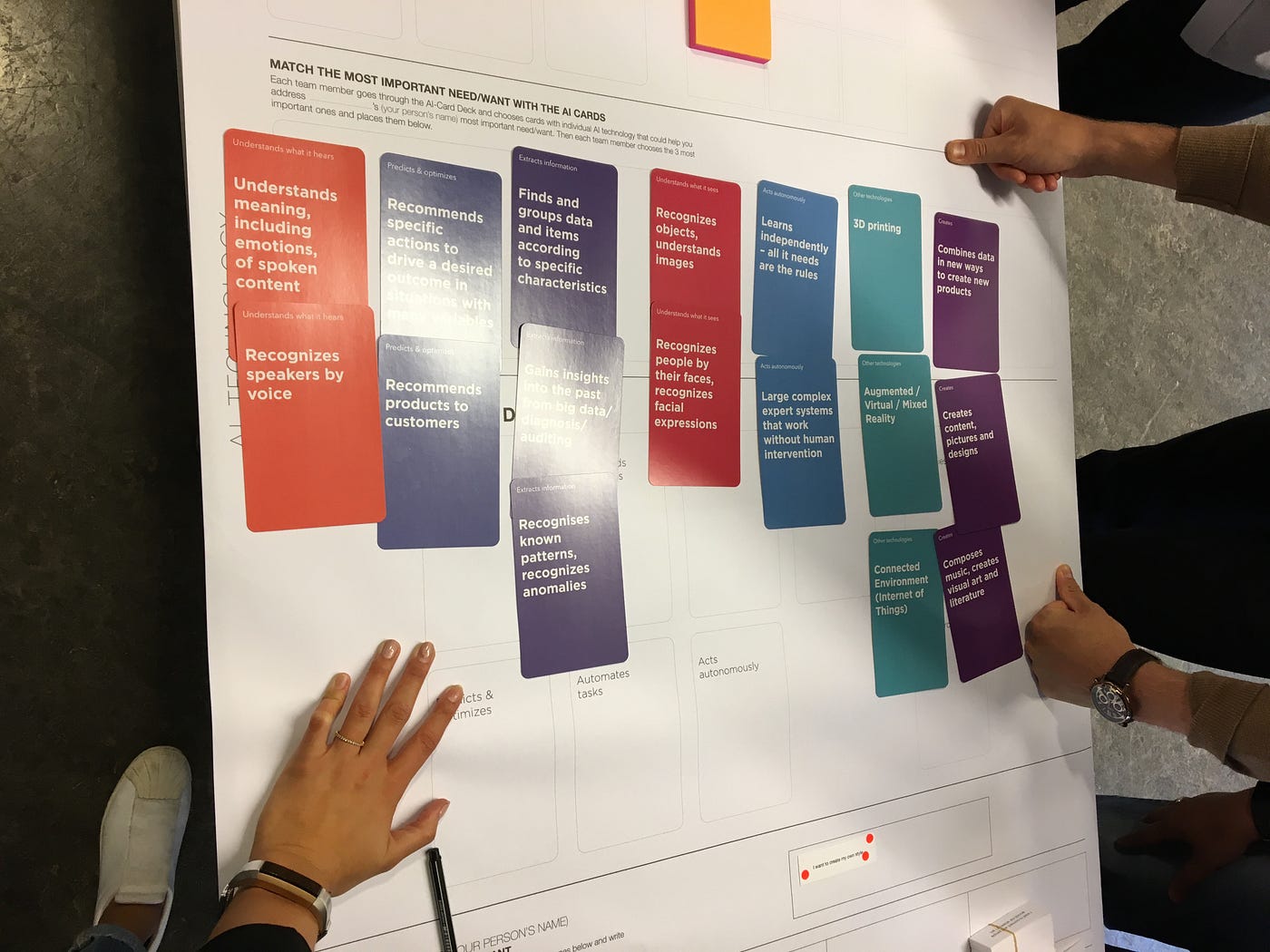
Something Ends, Something Begins
And so, in a moment’s time, our journey was over. It passed much more quickly than I could ever assume, and before I knew it, it was time to return home. What I wrote in this article is only a small fraction of what I had experienced at the Tech Fest.
I learned so much from this trip and created so many beautiful memories that I highly encourage everyone to do the same, because it will be something you will definitely not forget!☺️
